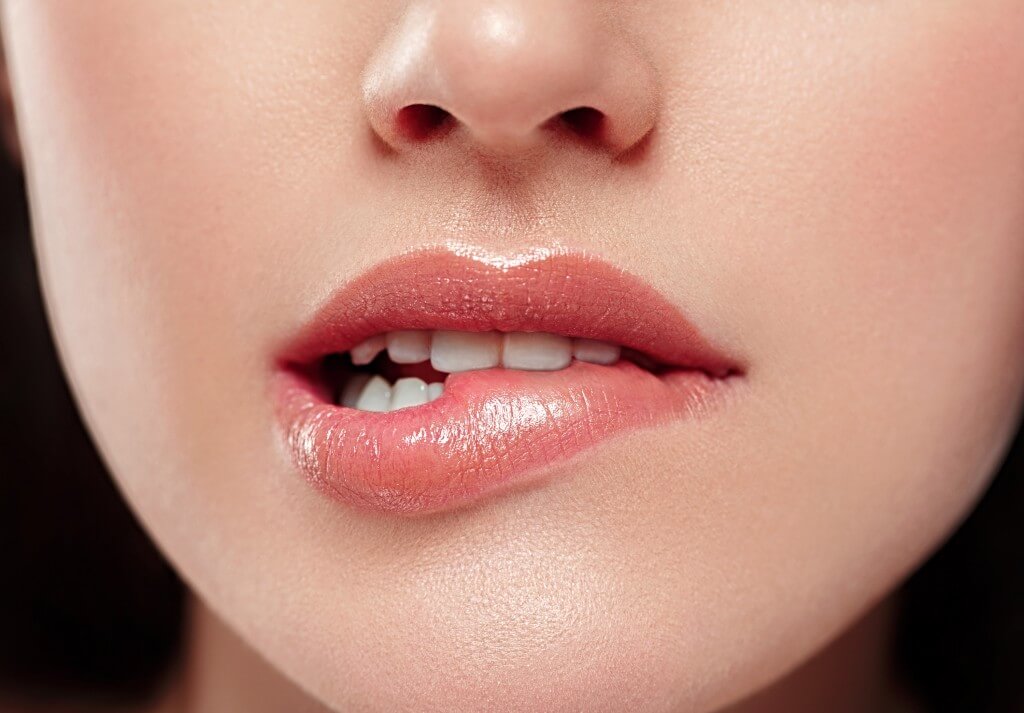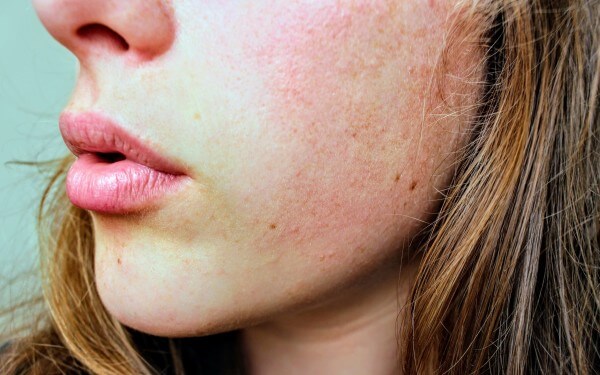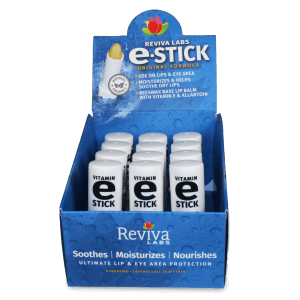Reviva Labs, Skin Care
How To Care for Chapped Lips
Chapped lips are a common problem, especially during the colder months, but they can occur year-round. Several factors contribute to this uncomfortable condition, many of which are environmental. Cold weather, especially when it’s windy, can strip moisture from your lips. Similarly, dry air, whether from indoor heating or air conditioning, can exacerbate the problem by reducing the humidity in the air, which in turn dehydrates the skin on your lips. Additionally, exposure to the sun without proper protection can lead to sunburned lips, which are prone to drying out and cracking.
Other habits and health conditions can also lead to chapped lips. Frequent lip licking, which many people do unconsciously to relieve the dryness can actually exacerbate the problem. Our saliva evaporates quickly, which can leave lips even drier than before. Habitually biting or picking at the lips can also contribute to the problem by damaging the delicate lip skin. Dehydration is another major culprit. When your body lacks sufficient water, your lips are often one of the first areas to show signs of dryness. Additionally, some medications, such as those prescribed for acne, can cause or exacerbate lip dryness. Deficiencies in certain vitamins, particularly B vitamins, and iron can also manifest as cracked, peeling lips. Understanding the root causes of chapped lips is the first step in addressing the problem effectively.
Lip Balms – Your First Line of Defense
Lip balms are perhaps the most accessible and widely used product for treating chapped lips. However, not all balms are created equal. The most effective balms contain a blend of emollients and occlusives, which work together to moisturize and protect the lips. Emollients, like natural oils and butters, soften and hydrate the skin, while occlusives, like waxes, form a barrier to prevent moisture loss.
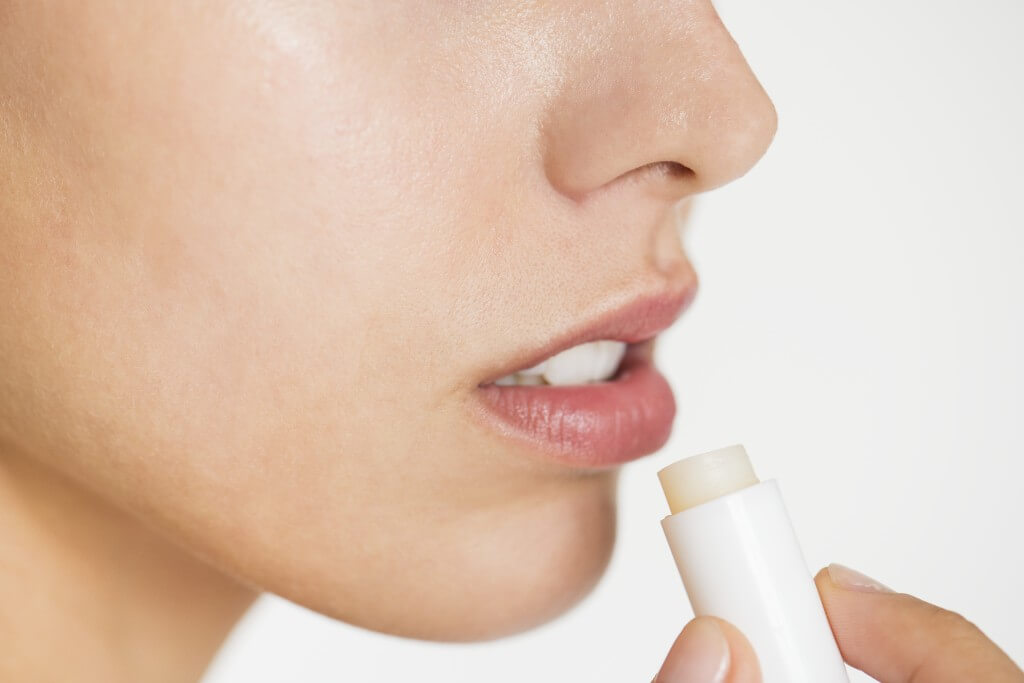
It’s worth noting that some lip balms contain ingredients like menthol or camphor, which can feel soothing but may actually cause further irritation for some people. If you find that a certain balm is making your lips feel drier or more irritated, it might be best to switch to a balms that contains humectants like glycerin or hyaluronic acid, which draw moisture into the skin. For best results, reapply your lip balm throughout the day, especially after eating or drinking, to maintain a protective layer.
Lip Masks – Intensive Overnight Care
For those times when your lips need extra care, a lip mask can provide deep hydration and nourishment. Lip masks are designed to deliver a concentrated dose of moisturizing ingredients, making them ideal for treating severely chapped lips. These masks often contain ingredients like hyaluronic acid, which attracts and retains moisture, and vitamin E, which helps repair and protect the skin.
Using a lip mask overnight allows the ingredients to work while you sleep, giving your lips time to absorb the moisture they need to heal. Some masks are designed to be worn for shorter periods, such as 15 to 20 minutes, and can be a quick fix for dry lips during the day. Regardless of the type, incorporating a lip mask into your routine can help maintain soft, supple lips, especially during harsh weather conditions.
Exfoliation – Sloughing Away Dead Skin
Regular exfoliation is another key step in maintaining healthy lips, especially when they are chapped. Exfoliation removes dead skin cells that can build up on the surface of the lips, making them appear flaky and dull. However, it’s important to exfoliate gently, as the skin on the lips is delicate and easily damaged.
A lip scrub made from natural ingredients like sugar and honey can be an effective yet gentle exfoliant. Sugar acts as a natural exfoliant, while honey provides moisture and has antibacterial properties. Gently massaging the scrub onto your lips in a circular motion helps to lift away dead skin cells, revealing smoother, softer lips underneath. It’s important to be gentle when exfoliating your lips, as the skin on your lips is much thinner and more delicate than the rest of your face.
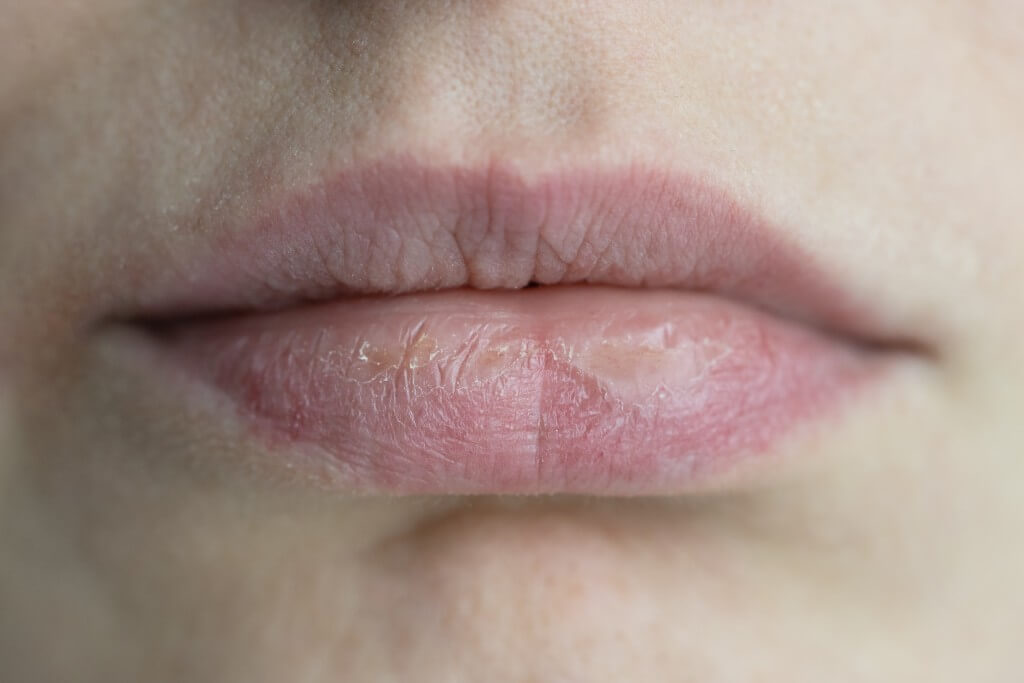
Aim to exfoliate your lips once or twice a week, depending on how dry they are. Over-exfoliating can lead to further irritation, so it’s important to listen to your lips’ needs.
Protecting Your Lips from Environmental Damage
While lip balms, masks, and exfoliators can do wonders for treating chapped lips, prevention is always better than cure. Protecting your lips from environmental damage is key to maintaining their health. In cold or windy weather, make sure to apply a thick layer of lip balm before heading outside. This acts as a barrier, shielding your lips from harsh elements.
Sun exposure can also lead to chapped lips, as the skin on your lips lacks the melanin needed to protect against UV rays. Using a lip balm with SPF is crucial when spending time outdoors, even on cloudy days. This not only prevents chapping but also reduces the risk of skin cancer on the lips.
Incorporating these protective measures into your daily routine can significantly reduce the frequency and severity of chapped lips, allowing you to enjoy soft, smooth lips year-round.
A Complete Approach to Lip Care
Caring for chapped lips requires more than just applying a balm when they feel dry. A holistic approach, including proper hydration, regular exfoliation, and the use of intensive treatments like lip masks, can help keep your lips in top condition. Understanding the causes of chapped lips allows you to address them at their source, whether it’s environmental factors, lifestyle habits, or health conditions. By incorporating these practices into your daily routine, you can prevent and treat chapped lips effectively, ensuring that your lips stay soft, hydrated, and healthy, no matter the season.



